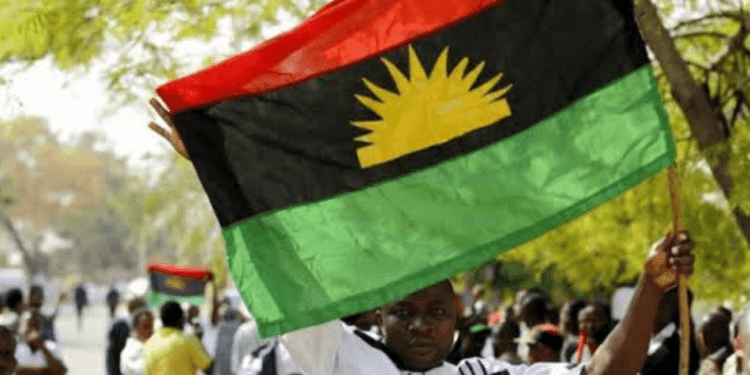The Indigenous People of Biafra (IPOB) has escalated its legal battle against the Nigerian government’s proscription by taking its case to the Supreme Court. This follows the Court of Appeal’s January 30 ruling, which upheld the Federal Government’s designation of IPOB as a terrorist organization. In its appeal filed on February 7, IPOB argues that the decision by the lower court violated fundamental constitutional rights, particularly the right to a fair hearing as enshrined in Section 36 of the Nigerian Constitution. The appeal, marked SC/CA/A/214/2018, names the Attorney General of the Federation (AGF) as the respondent.
One of the central arguments in IPOB’s appeal is that the Court of Appeal erred in law by allowing an ex parte order to classify IPOB as a terrorist group without granting the group an opportunity to defend itself. IPOB’s lawyers contend that the procedure was flawed, as it did not allow the group to present its case, which they argue should have been a crucial part of the legal process. Furthermore, IPOB asserts that its designation ignored the need for proof beyond reasonable doubt, a standard typically required in criminal cases.
Additionally, IPOB is challenging the ruling on the grounds of discrimination. The group claims that the proscription unfairly targeted its members, most of whom belong to the Igbo ethnic group, thus violating Section 42 of the Constitution, which protects citizens from discrimination. They argue that the label of “terrorist” unfairly stigmatizes their members, leading to potential abuses and violations of their human rights.
The appeal also argues that the lower court misinterpreted key provisions of the Constitution, particularly regarding national security concerns. IPOB asserts that the Court of Appeal wrongly prioritized national security over its members’ right to a fair trial. The group contends that the government failed to demonstrate the level of proof necessary for such a severe designation, and that national security concerns cannot justify the infringement of constitutional rights without clear and convincing evidence.
IPOB also takes issue with the Court of Appeal’s decision to treat proceedings before a judge in chambers as equivalent to an ex parte hearing, which they believe denied them their right to challenge the government’s actions. They further claim that the Court of Appeal overstepped its constitutional boundaries by essentially declaring a “state of emergency,” a power reserved exclusively for the President under Section 305 of the Constitution.
The Federal Government had argued that IPOB’s activities posed a significant threat to the nation’s security, prompting its proscription. The Court of Appeal, in its judgment, agreed with the government’s position, emphasizing the importance of maintaining national security over individual rights in certain cases. The judgment was clear in asserting that while individual rights are crucial, they must be suspended in the face of an existential threat to the country’s peace and unity.





































